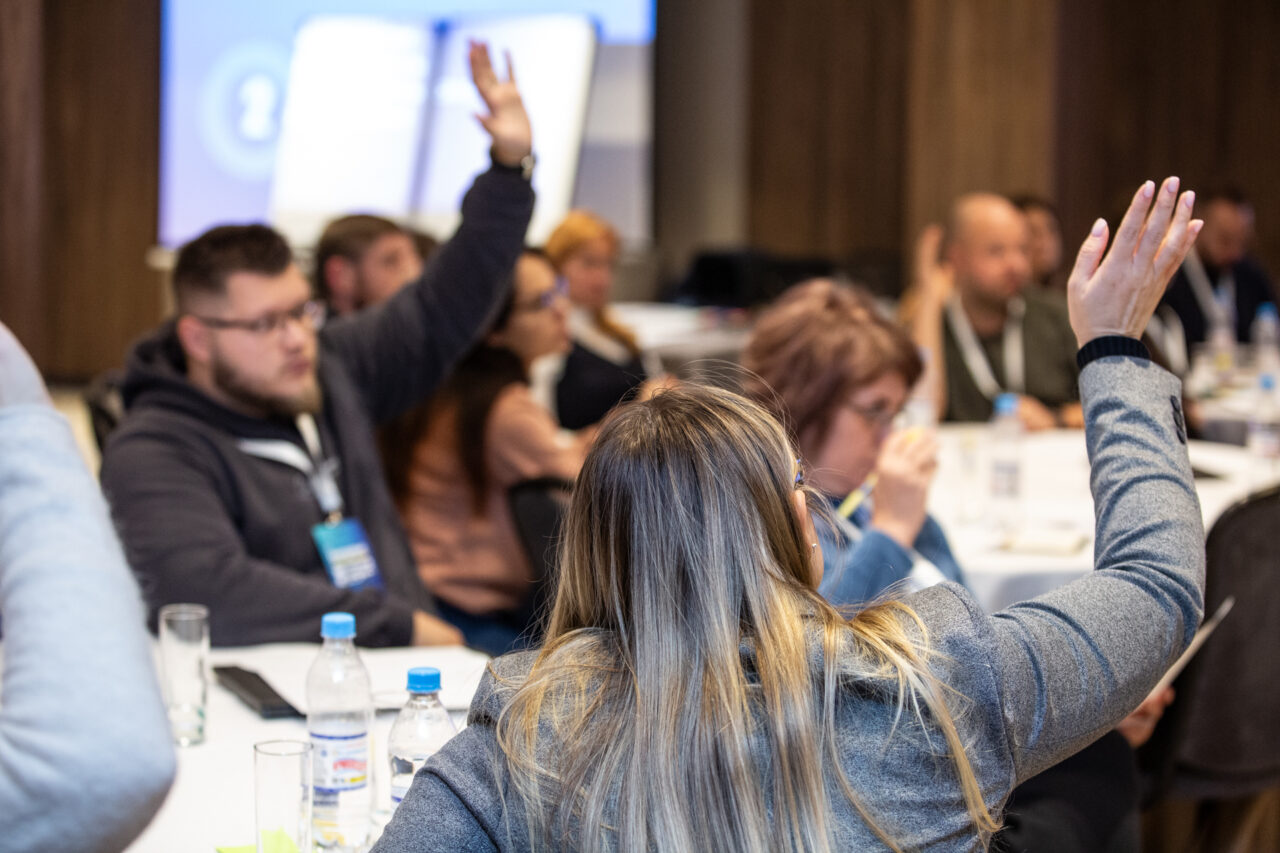
Three days of intensive discussions, practice, and insights. This is how our meeting unfolded with Impulse’s institutional grantees, who are working to strengthen their organizations.
We gathered 29 teams in the capital to collaborate on identifying what helps CSOs remain sustainable, effective, and able to support change in their communities.
Natalia Slynko, Vice President of Programs at East Europe Foundation, emphasized:
Institutional development is not an additional option. It is the foundation of sustainability. In the context of war, unpredictable changes, and a high workload, it is strong organizations that can maintain quality of work, focus, and trust. We have planned intensive and comprehensive training for you. After all, your organizations are the ones who are shaping local decisions and helping communities respond to complex challenges.
The first day was dedicated to change management and organizational effectiveness. Together with Karen-Marie Kragelund, a C-level expert with many years of international experience, the participants talked about the role of leaders in difficult times, assessed their own resources, and analyzed how their impact can be reflected in the MEAL system. They discussed how to combine personal and organizational goals and build a consistent development path.
The second and third days of the training focused on results-based management. Under the guidance of Solomiya Borshosh, an expert in international development and public administration, the program managers formed theories of change, defined indicators, built logic models, and practiced measuring results. What usually seems like a complex methodology evolved into a straightforward tool for daily work.
At the same time, financial managers worked with Larysa Shkurka, a certified auditor and organizational development consultant. Interactive exercises, a financial quest, and analysis of real-life cases helped to combine accounting data with donor requirements. A special focus was made on preparing for the annual report: participants analyzed accounting registers using practical examples and worked out an algorithm for creating transparent and correct financial statements.
A separate block was devoted to strategies for team collaboration. Together with Halyna Potopalska, an expert in strategy and system management, we discussed how to support people under stressful conditions, maintain cohesion, deal with risks, and integrate veterans into teams. The focus was on leadership, culture of interaction, and human capital as a key resource of the organization.
Three intense days gave the organizations the tools that they can apply in their work right now. Ahead lies the implementation of our own development plans and new educational activities that the Foundation team will carry out within the framework of the Impulse.
We continue to help grantees strengthen their teams, processes, and resilience!
The Impulse project is implemented by East Europe Foundation and the International Renaissance Foundation, with the support of the Norwegian Agency for Development Cooperation (Norad) and in partnership with the Swedish International Development Cooperation Agency (Sida).